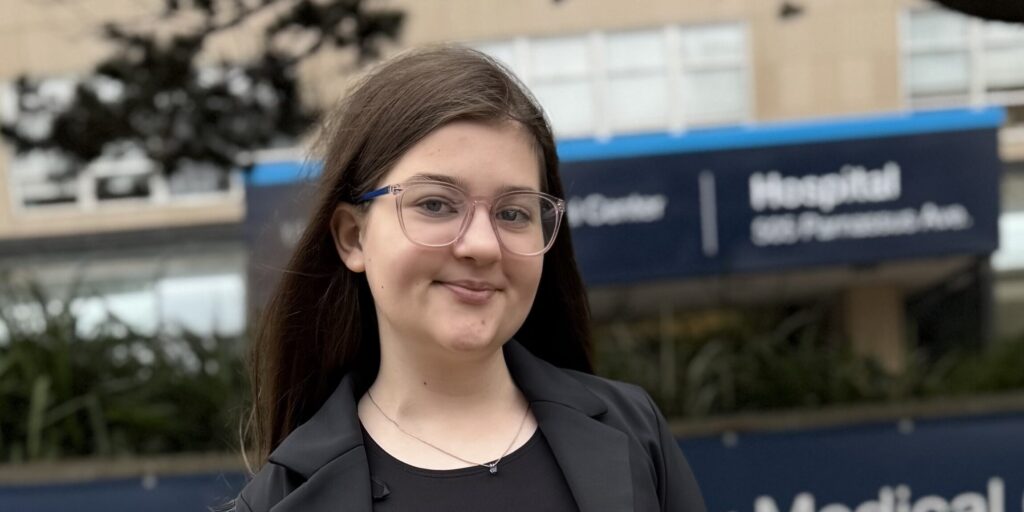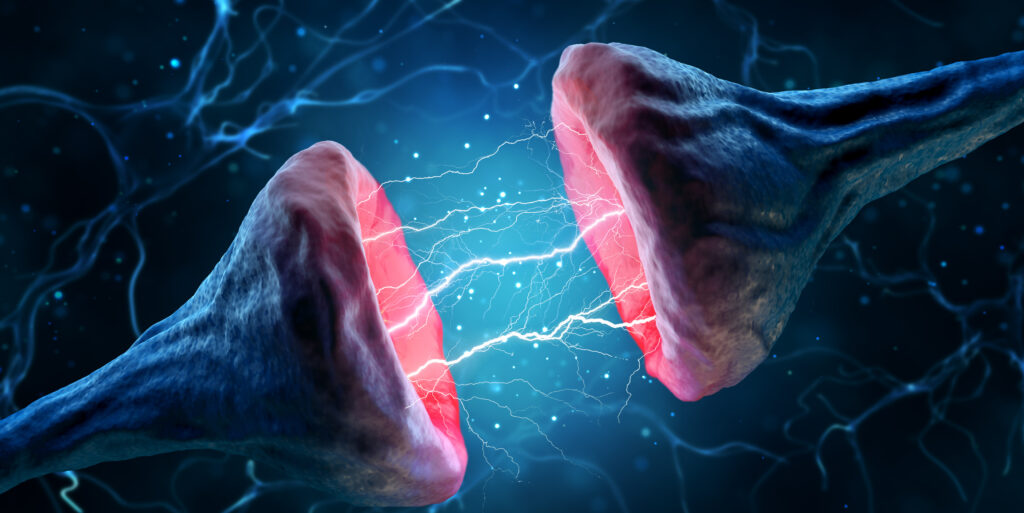![iStock-489729278 [Converted] iStock-489729278 [Converted]](https://mdaquest.org/wp-content/uploads/2025/08/PN-Hero-iStock-489729278-e1755621532481-1024x512.jpg)
Progress Now: Research News and Updates Across MDA Diseases
By MDA Staff | Tuesday, August 19, 2025
New approvals
New Treatment Approved for gMG
In April, the US Food and Drug Administration (FDA) approved Johnson & Johnson’s nipocalimab-aahu (IMAAVY™) for the treatment of people ages 12 and older living with generalized myasthenia gravis (gMG) who are anti-acetylcholine receptor (AChR) or anti-muscle-specific tyrosine kinase (MuSK) antibody-positive. This is a significant advancement for the more than 100,000 people in the United States living with gMG, a chronic autoimmune neuromuscular disease.
IMAAVY™ is a neonatal Fc receptor (FcRn) inhibitor designed to reduce the levels of pathogenic autoantibodies that drive MG. By targeting these autoantibodies, IMAAVY™ offers patients a targeted, effective, and potentially life-changing treatment option. Data from the pivotal, ongoing Vivacity-MG3 study support the FDA’s approval of IMAAVY™.
While current treatments exist for gMG, many patients experience incomplete symptom relief or challenging side effects. IMAAVY™ approval expands the treatment landscape, offering a novel approach to reducing disease burden and providing a new option for those who have struggled with conventional therapies.
For more information on the ongoing Vivacity-MG3 study, go to ClinicalTrials.gov and enter NCT04951622 in the “Other terms” search box.
FDA Expands Use of Eculizumab (Soliris) to Pediatric MG
The FDA’s approval of Alexion/AstraZeneca’s eculizumab (Soliris) for adults with gMG who are AChR antibody-positive has been expanded to patients ages 6 and older. This landmark approval makes Soliris the first and only treatment available for pediatric patients living with gMG.
The expanded use of Soliris is supported by clinical trial data from adults with gMG, as well as data on drug safety and how it interacts with the body in pediatric populations. A 26-week study of 11 pediatric patients ages 12 to 17 demonstrated that adverse reactions to Soliris were consistent with those observed in adults.
Soliris was first approved in 2007 for the blood disorder paroxysmal nocturnal hemoglobinuria. It works by inhibiting the complement system (part of the body’s immune system) to prevent it from damaging tissues. The treatment has since been approved for multiple blood disorders and autoimmune conditions besides gMG.
Vyvgart Hytrulo Prefilled Syringe Approved
The FDA approved a new option for patients to self-inject efgartigimod alfa and hyaluronidase-qvfc (VYVGART® Hytrulo) with a prefilled syringe. The therapy is approved for the treatment of adults with gMG who are AChR antibody-positive
While the earlier version of VYVGART® Hytrulo requires administration by a healthcare provider, the new prefilled syringes allow the drug to be administered at home by a patient or caregiver after receiving instruction. According to the drug sponsor, argenx, this option enhances patient independence and reduces the time required for treatment.
VYVGART® Hytrulo is designed to reduce the circulating immunoglobulin G (IgG) autoantibodies in the bloodstream. By lowering the levels of these harmful antibodies, it may ease MG symptoms and overall disease severity.
MDA research in action
Supporting Science and Education
In addition to providing a significant number of research grants each year to scientists working in the neuromuscular field, MDA offers conference grants to other organizations to support scientific or educational meetings related to neuromuscular diseases. The goal is to promote connections and knowledge sharing between researchers, clinicians, and the patient community. MDA’s 2025 conference grants include:
2025 CMD Scientific & Family Conference
This conference brought together stakeholders in congenital muscular dystrophy (CMD), nemaline myopathy, and titinopathy, including researchers, clinicians, affected individuals and their families, industry representatives, advocacy groups, and government officials.
2025 RYR-1-Related Diseases Patient-Led International Research Workshop
This workshop united international experts in RYR-1-related diseases with affected individuals and family members to share knowledge, form collaborations, and develop strategies for finding therapies.
2025 CMTA Patient & Research Summit
The summit included presentations on living well with Charcot-Marie-Tooth disease (CMT) and updates on the Charcot-Marie-Tooth Association’s Strategy to Accelerate Research (STAR) programs and initiatives, presented by CMT researchers.
Amyotrophic lateral sclerosis (ALS)
Drug Selected for Platform Trial
Transposon Therapeutics announced that TPN-101 has been selected for testing in the HEALEY ALS platform trial, a groundbreaking research effort aimed at testing multiple therapies simultaneously to find effective treatments for ALS.
TPN-101 is an oral small-molecule drug designed to block an immune response that leads to inflammation and damage to nerve cells, which may contribute to the progression of ALS related to C9orf72 gene mutations. The decision to include the treatment in the platform trial was based on its unique mechanism of action and final data from a phase 2 clinical trial. The trial involved 42 adults with ALS or frontotemporal dementia (FTD) related to C9orf72 mutations. The results showed that treatment with TPN-101 significantly reduced the rate of disease progression compared to placebo.
HEALEY is the first ALS platform trial designed to accelerate the path to new ALS therapies by testing multiple treatments at once and comparing the results against a pooled placebo group. This reduces the cost of research, decreases the trial time, and allows more participants to be given an active drug rather than the inactive placebo. MDA has supported the HEALEY ALS trial with a clinical research grant.
For more information on the phase 2 trial, visit ClinicalTrials.gov and enter NCT04993755 in the “Other terms” search box.
Phase 3 Trial Opening Soon
A phase 3b clinical trial to test Brainstorm Cell Therapeutics’ debamestrocel (NurOwn), a stem cell-based therapy for ALS, is expected to open soon at multiple sites across the US.
NurOwn aims to slow disease progression and potentially extend survival in people with ALS using a patient’s own mesenchymal stem cells (MSCs), which are collected from their bone marrow. In a lab, the MSCs are turned into cells that can promote healthy nerve cell growth and survival. Then they are infused back into the patient.
In a phase 3 clinical trial of 189 adults with rapidly progressing ALS, NurOwn was not shown to significantly slow disease progression compared with a placebo, but a subset of patients with less advanced disease did appear to benefit from the treatment.
Brainstorm announced that it plans to recruit about 200 adults with moderate disease who have been experiencing symptoms of ALS for less than two years for the phase 3b trial, called ENDURANCE. The FDA has reviewed and agreed to the trial protocol, which allows Brainstorm to activate clinical trial sites quickly and potentially supports a future application for approval of NurOwn.
For more information, visit ClinicalTrials.gov and enter NCT06973629 in the “Other terms” search box.
Duchenne muscular dystrophy (DMD)
Positive Data From Gene Therapy Trial
Regenxbio Inc. announced new positive interim data from a phase 1/2 clinical trial of RGX-202, an investigational gene therapy for DMD.
In DMD, a mutation in the dystrophin gene prevents cells from making enough functional dystrophin protein, which muscle cells need to function and repair themselves. The AFFINITY clinical trial is testing the safety, tolerability, and efficacy of a one-time intravenous (into the vein) dose of RGX-202 in boys ages 4-12 with DMD. This therapy is designed to deliver a gene with instructions to make microdystrophin (a shortened but functional dystrophin protein) to muscle cells.
New findings suggest that RGX-202 positively impacts the disease trajectory, with participants receiving a specific dose level showing meaningful functional improvement. Regenxbio also reported that the therapy continues to be well-tolerated, with no serious side effects reported.
For more information, visit ClinicalTrials.gov and enter NCT05693142 in the “Other terms” search box.
New Therapy May Improve Muscle Repair
A new oral small-molecule therapy for DMD, SAT-3247, is safe and shows early signs of increasing muscle strength in a phase 1b clinical trial, according to Satellos Bioscience Inc.
DMD impairs the production or function of dystrophin, a protein that helps protect muscles from damage during movement. In addition, the condition appears to disrupt the body’s natural process for repairing muscle damage. SAT-3247 is designed to address progressive muscle loss in people with DMD by restoring muscle regeneration in response to damage.
In the open-label phase 1b trial, five adult male participants took SAT-3247 concurrently with standard-of-care corticosteroid therapy. Data show that average grip strength doubled across participants.
Satellos plans to advance SAT-3247 to a placebo-controlled phase 2 trial.
For more information, visit ClinicalTrials.gov and enter NCT06565208 in the “Other terms” search box.
Support for Gene Editing Therapy
The FDA has granted rare pediatric disease designation to Precision Biosciences’ PBGENE-DMD, an experimental gene-editing therapy for DMD.
Gene mutations that cause DMD occur in specific sections of the dystrophin gene, called exons. These exons are numbered, and more than 60% of people with DMD have mutations between exons 45-55.
PBGENE-DMD is designed to remove exons 45-55 with one administration, using an adeno-associated virus (AAV) to deliver the therapy to cells in the body. According to Precision, this approach will permanently edit the person’s DNA sequence, resulting in naturally produced, functional dystrophin protein.
Rare pediatric disease designation incentivizes companies to develop treatments for rare and serious or life-threatening diseases affecting people under age 18. Precision may use this award to support a request for FDA priority review of PBGENE-DMD.
Clinical Trial Terms to Know
Double-blind: Neither researchers nor participants know which participants are taking the drug or placebo.
Multiarm: Comparing several experimental treatments against a common control group within a single study.
Multicenter: The trial is completed at more than one site.
Open-label: Participants know what treatment they are receiving.
Placebo-controlled: Some participants receive the treatment being tested and some receive a placebo that looks like the real treatment but has no active ingredients.
Randomized: Participants are randomly assigned to groups taking the drug or placebo.
Next Steps and Useful Resources
- Find a list of trials actively recruiting individuals to help advance research and treatment development.
- Stay up to date on Quest content! Subscribe to Quest Magazine and Newsletter.
Disclaimer: No content on this site should ever be used as a substitute for direct medical advice from your doctor or other qualified clinician.




